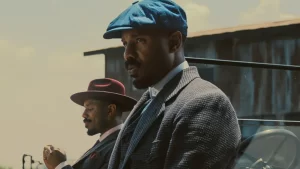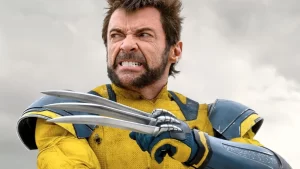Do You Hear the Oscars Sing?
A Film Review of Les Misérables
By: Lawrence Napoli
I remember having read the original novel by Victor Hugo in high school and despite viewing class as a complete and utter task, this was a story I genuinely enjoyed. I remember having been treated to a Broadway performance of the show in NYC starring Colm Wilkinson as Valjean and being blown away by the featured performances of several “Valjeans” from around the world performing One Day More in their native tongues after the finale. I remember being incredibly impressed by Les Misérables in Concert filmed at the Royal Albert Hall in London back in 1995. I remember being somewhat disappointed by Liam Neeson’s dramatic adaptation of the character in a star studded Hollywood film directed by Bille August in 1998. I am a Les Mis super fan. Needless to say, when I saw the Anne Hathaway trailer and Hugh Jackman mini documentary at my local Regal Cinemas, I just about lost my mind with voracious anticipation.
One more day to fight. One more day to live.
But wait! The 2012 adaptation of the musical masterpiece of Les Misérables is not a perfect film despite every legitimate production element being worthy of Oscar nomination if not gold. Weakness #1 must be the scene transitions. Like any play, Les Mis has plenty of awkward shifts in geography and time as the plot progresses, but the format of this entertainment spares the audience uneasiness due to the orchestra’s transition overtures, on-the-fly stage transformation and strategic implementation of the curtain. A movie has no such need for any of these tools as time and space is far more easily manipulated. Unfortunately, 2012’s Les Mis has several moments where a change in song is as blunt as hitting the skip track button on a stereo. Director Tom Hooper clearly wanted an authentic representation of the musical on film, but I don’t believe being a slave to the music was the way to go. Adding short lines of dialogue or exposition could have easily reconciled these jarring transitions and would not have adversely affected the end product.
[[wysiwyg_imageupload:4876:]]
Am I to be a slave of the original score?
Weakness #2 is that not every actor in this film is an accomplished singer. You’ve probably heard it by now, but everyone has designated Russell Crowe as the weakest link, and I truly hate to kick him while he’s down, but it’s all true. Yet, I feel compelled to defend Crowe because he is still a great film actor and some very raw emotion gets conveyed by the man’s face as the antagonist Javert. However, the sound that protrudes from his mouth is the furthest from menacing, demonstrative and anything matching the proficiency of anyone else in the cast. Tom Hooper could have helped his actor out in a couple of ways. First, consider dropping Javert’s lyrics down an octave to more comfortably match Crowe’s speaking voice. Two, immediately addressed Crowe’s legato delivery which is completely out of character for Javert who is meant to be staccato; further enhancing his domineering persona. Three, consider recasting all together. Russell Crowe is one of the greatest film actors of all time, but even his legacy will be bumped and bruised as a result of his efforts here. I just hope whoever produces the upcoming Academy Awards show does not make fun of Crowe’s Javert because that man will show up specifically to knock someone out on live television – Romper Stomper style.
[[wysiwyg_imageupload:4875:]]
Not one word! Or else someone gets a fist in the face!
Those issues aside, Les Mis uses other Hollywood tools to their maximum potential which infuses layers of pristine production value to the overall experience. The camera’s ability to get right up close into each and every actor’s face is one thing the stage will never be able to duplicate. Danny Cohen’s cinematography allows the audience to absorb every ounce of sorrow and happiness from an extremely accomplished cast that is equal to the task. It also allows the actors to use the freedom of live singing as the cameras roll to put more of their characters into their songs. The costume design by Paco Delgado reflects classic depictions of each character, but is no less proficient than any production that came before. The combined efforts of production designer Eve Stewart and supervising art director Grant Armstrong deliver the kind of set pieces that give early 1800s France an epic scale never before depicted by this musical.
[[wysiwyg_imageupload:4868:]]
Set design: BANG!
The biggest surprise of this film was the performance of Amanda Seyfried as young adult Cosette. She’s already shown that she could sing for the silver screen with her performance in Mamma Mia (2008), but those tracks were recorded in a studio and dubbed in post production. Ms. Seyfried reveals quite the lovely soprano voice for her live recording and although I was expecting a professional acting performance, I was not expecting such an exquisite voice. I totally bought into her chemistry with Eddie Redmayne’s Marius which was no small challenge thanks to both of their characters’ limited screen time.
[[wysiwyg_imageupload:4869:]]
The blonde beauty of Seyfried
For the record, the biggest disappointment is technically Russell Crowe’s Javert, but he wasn’t the only one. Thénardier and his Mrs. played by Sacha Baron Cohen and Helena Bonham Carter respectively were amusing playing the comic relief of this production, but neither was hysterical and I felt their acting and singing seemed to be holding something back, muffled in projection, diminished in capacity. I respect that Borat was the only member of the cast to attempt a French accent whilst singing his tunes, but a man that has made a career out of shock, despicable and disgust should have been able to produce a more repulsively delicious rendition of Thénardier. Granted, both Cohen and Carter have very limited screen time, but anyone playing a character not named Valjean or Javert has to deal with that reality and others did so with greater success.
[[wysiwyg_imageupload:4870:]]
Lazy, mailed-in, or something else? You decide.
Speaking of which, Anne Hathaway’s portrayal of Fantine was inspired, so much so that I must begin to reevaluate my general disdain for her as a result of her work in Les Mis. Her performance of I Dreamed a Dream is easily one of the most emotional moments in the entire film as any viewer can tell that Hathaway is digging deep into her own soul to produce the face of despair and desperation. Now, I could never claim to have tasted the kind of real world horrors like homelessness, disease and physical abuse, but I can certainly identify with the endless toiling of mind-numbing work where the only reward is keeping the bill collectors at bay. However one identifies with Fantine, it is Hathaway that compels us to sympathize. Even Victor Freeze would be hard pressed to hold back the tears.
[[wysiwyg_imageupload:4871:]]
Is the dream truly dead?
The Co-MVPs of this production are an obvious choice and an unexpected one. Hugh Jackman as Jean Valjean/24061 was just about the biggest no-brainer of the decade in Hollywood Land. The man’s experience in musical theater, his physical stature, his experience in films in addition to the wide variance of his roles makes him the perfect actor for the perfect role. Jackman buys into his role heart, body and soul as is frighteningly obvious as Valjean, the prisoner is almost Machinist skinny in the beginning of the film and I have never seen Hugh in any kind of physical condition other than prime. Jackman puts the entire spectrum of human emotion on display and maintains a high level of intensity as only the best leading men of Hollywood have done. It will be a stretch for Wolverine to triumph over Abraham Lincoln for this year’s best actor in a leading role, but it is very possible and quite deserving. Also, his chemistry with Valjean Legend Colm Wilkinson, who plays the bishop in this film adaptation, is remarkable for its brevity and a proper homage to the history of this musical’s significance.
[[wysiwyg_imageupload:4872:]]
Machinist Valjean
The other MVP happens to be Eddie Redmayne as Marius. I was misty eyed for most of the film, but when he sang Empty Chairs at Empty Tables, it was all over and the waterworks began to flow. This moment is the emotional climax of the film and with only 50% of the film’s overall screen time to work with; Redmayne steals just about every scene late in the game because the intense sincerity in his eye is second only to Jackman. Best known for his recent role in My Week with Marilyn (2011), Redmayne is coming up on the Hollywood power charts and I certainly expect his name to be nominated for best actor in a supporting role for his excellent work in Les Mis.
[[wysiwyg_imageupload:4873:]]
Red: the color of the carpet. Black: the color of my tux.
Even the most casual fan of Les Misérables, the musical will be stunned by the vibrant life this film breathes back into the tale. For those unfamiliar with the play or the novel, expect to see a powerful tale of the downtrodden attempting to rise above poverty, greed, hunger and hate to find a higher cause in life for themselves and others. It is a story that reminds us that life will always throw danger, complication and hostility in our direction, but even a simple act of kindness given by or to us can give us the strength to carry on. Those familiar with the story will be very forgiving of the transition gaps so viewer beware. You may have to simply accept the plot jumps on faith alone, but also know this. If you are willing to suspend that disbelief and open your heart you will bear witness to one of the best dramas that expose the essence of humanity: the dichotomy of grace and disgrace.







